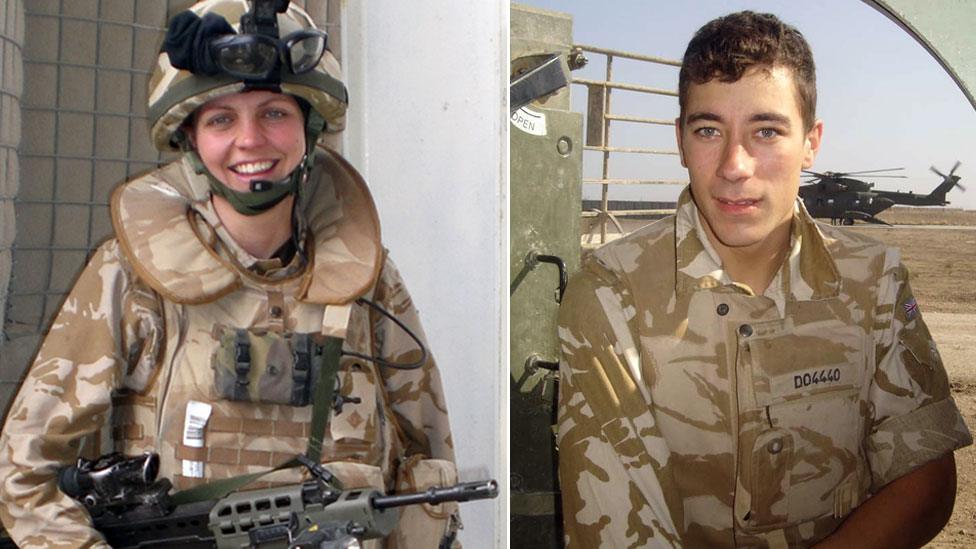Chilcot report: Crystal clear, polite - but damning
- Published
Laura Kuenssberg reports on the findings of this long-anticipated investigation
It has taken longer than anyone expected.
But the conclusions, reached with the weight of more than two million words, backed with evidence from thousands upon thousands of documents, are crystal clear, polite - but no doubt, completely damning - even if perhaps no real surprise.
There will be weeks of searching through the evidence that's been published for the first time today, so these first reflections may be reshaped in the days to come. But in these first hours, Sir John Chilcot's judgements seem careful, but bold and precise.
The report suggests the government failed, the intelligence community failed, the military failed, and that Tony Blair ran his government in a way that meant the possible and probable consequences of military action in Iraq were never properly considered.
That's despite the suggestion that as early as December 2001, the former prime minister had discussed a "clever strategy" with George Bush about regime change in Iraq.
The report also suggests clearly that although military action might have proved necessary to stop Saddam Hussein at a later date, it was not the last resort at that point, and when British military men and women were sent in to risk their lives, "there was no imminent threat".
Here are the main conclusions from the inquiry, external in its own words.
"We have concluded that the UK chose to join the invasion of Iraq before the peaceful options for disarmament had been exhausted. Military action at that time was not a last resort."
"The judgements about the severity of the threat posed by Iraq's weapons of mass destruction - WMD - were presented with a certainty that was not justified."
"Despite explicit warnings, the consequences of the invasion were underestimated. The planning and preparations for Iraq after Saddam Hussein were wholly inadequate."
"The government failed to achieve its stated objectives."
But the inquiry report only goes some way to answer the questions that have been so frequently posed.
Was the war legal?
The Chilcot report points out that their committee was not a court, they were not a jury. They were not set up to make any legal findings.
But they go just about as far as they possibly could with that limitation saying: "We have, however, concluded that the circumstances in which it was decided that there was a legal basis for UK military action were far from satisfactory."
What the report also reveals explicitly, is that the final decision on legality was taken by Tony Blair, not the cabinet or the government's legal officers.
In fact his attorney general made that plain in documents that the inquiry has published, saying "this is a judgement for the prime minister".
The specific decision was as to whether Iraq was in material breach of UN resolution 1441, so that military action could be legally justified without a further resolution.
Correspondence from Mr Blair's office replies to say "it is indeed the prime minister's unequivocal view that Iraq is in further breach" but Chilcot concludes: "It is unclear what specific grounds Mr Blair relied upon in reaching his view."
Were we misled?
Downing Street is cleared of one of the most controversial charges of all, that Number 10 deliberately manipulated or "sexed up" the case.
"There is no evidence that intelligence was improperly included in the dossier or that Number 10 improperly influenced the text."
But reading the document the impression is certainly created that Tony Blair's government was looking for facts to support his determination to change the Iraqi regime, rather than looking at the facts carefully in order to make that decision.
The inquiry concludes the intelligence "had not established beyond doubt that Saddam Hussein had continued to produce chemical and biological weapons".
And crucially that, in the September dossier, there was a "deliberate selection of a formulation which grounded the statement in what Mr Blair believed, rather than in the judgements which the Joint Intelligence Committee had actually reached".
In other words, the politics blurred the practical judgements even if there is no evidence of deliberate intent to mislead.
Were we prepared?
Chilcot's answer? Not remotely.
It is astonishing to see in black and white, the conclusion that "there were no substantive discussions of the military options, despite promises by Mr Blair, before the meeting on 17 March" - that was less than a week before the war began.
It's evident in the report that there was not enough planning or preparation by the military, and not enough capacity for a long-term commitment.
And in terms of the turmoil that the war unleashed in the region, Tony Blair told the inquiry that it could not have been foreseen.
That's dismissed in a politely caustic conclusion - "we do not agree that hindsight is required. The risks of internal strife in Iraq, active Iranian pursuit of its interests, regional instability and Al Qaida activity in Iraq, were each explicitly identified before the invasion" and to boot, ministers were aware, the report says, of the "inadequacy" of the American plans.
It's perfectly feasible that the Chilcot report will confirm opinions rather than change minds. But the inquiry has provided not just fragments of the controversial conflict, but the fullest account in modern times of a recent war.
There is a distinct possibility that those who care most passionately about what went wrong will use what's been set out today to seek punishment for those mistakes. Sir John's verdicts run to more than two million words, but there is much much more to come.
- Published6 July 2016
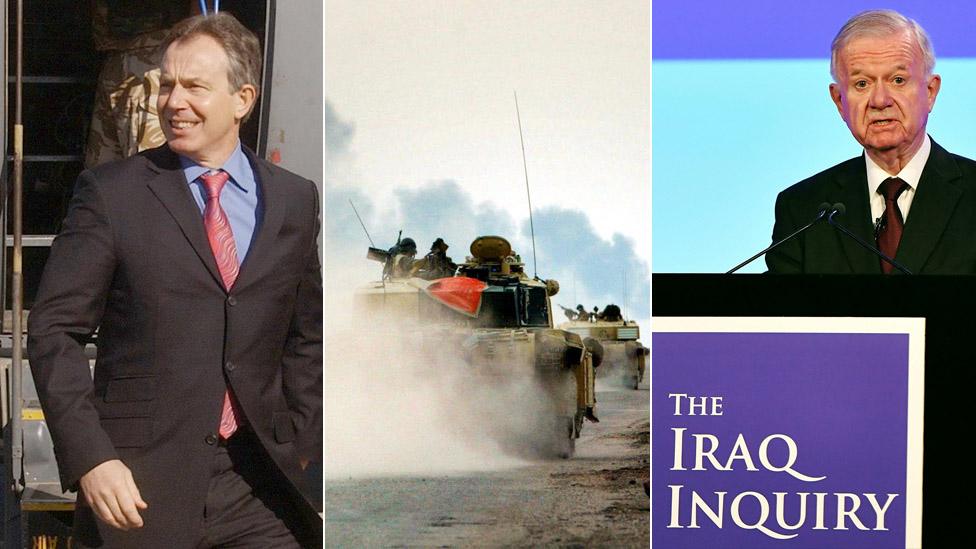
- Published6 July 2016
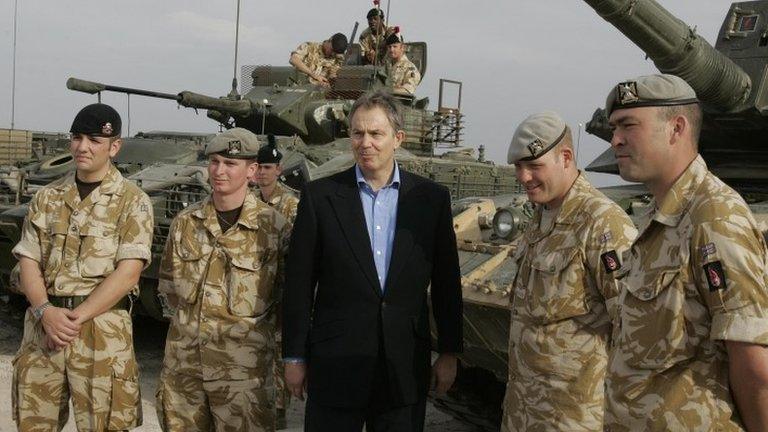
- Published6 July 2016
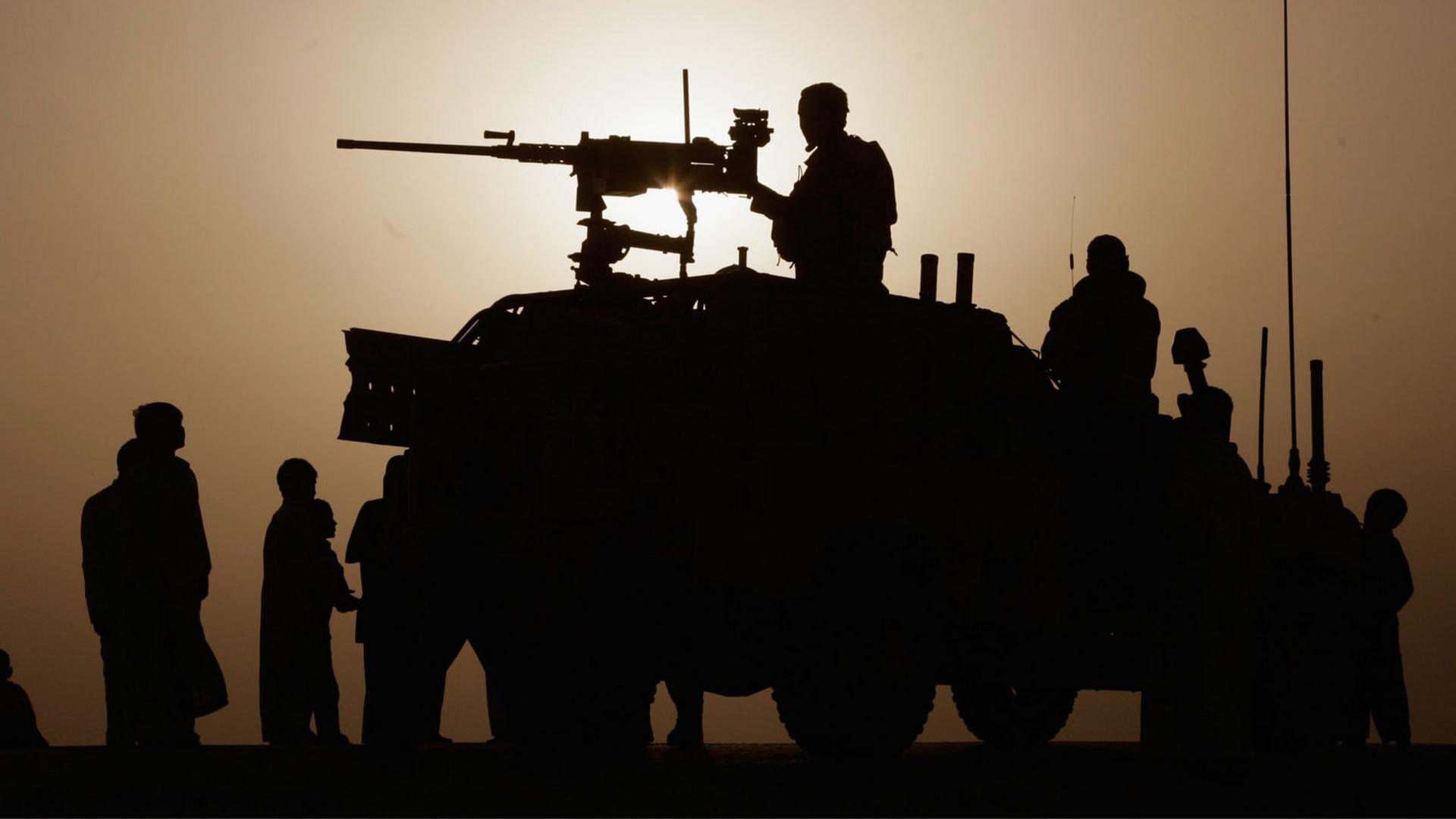
- Published6 July 2016
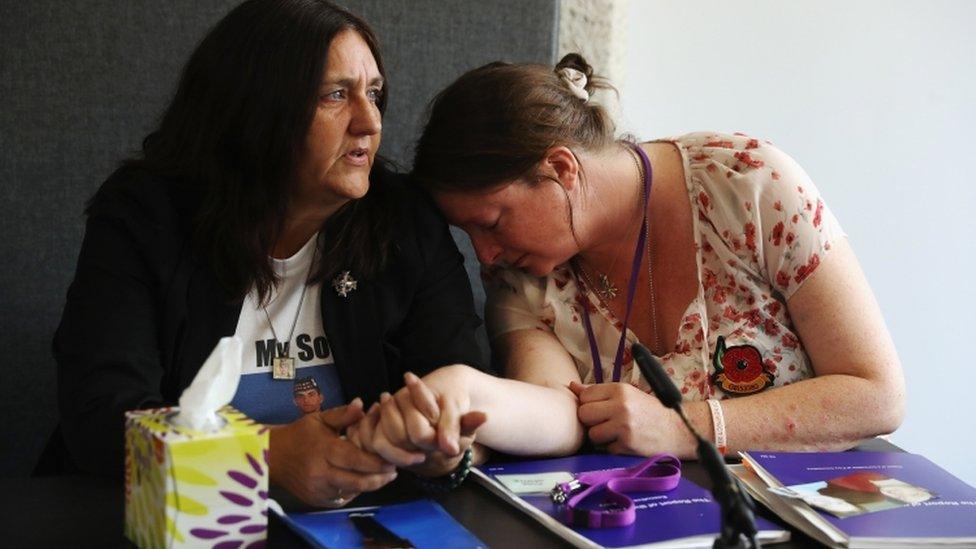
- Published9 July 2016
- Published6 July 2016
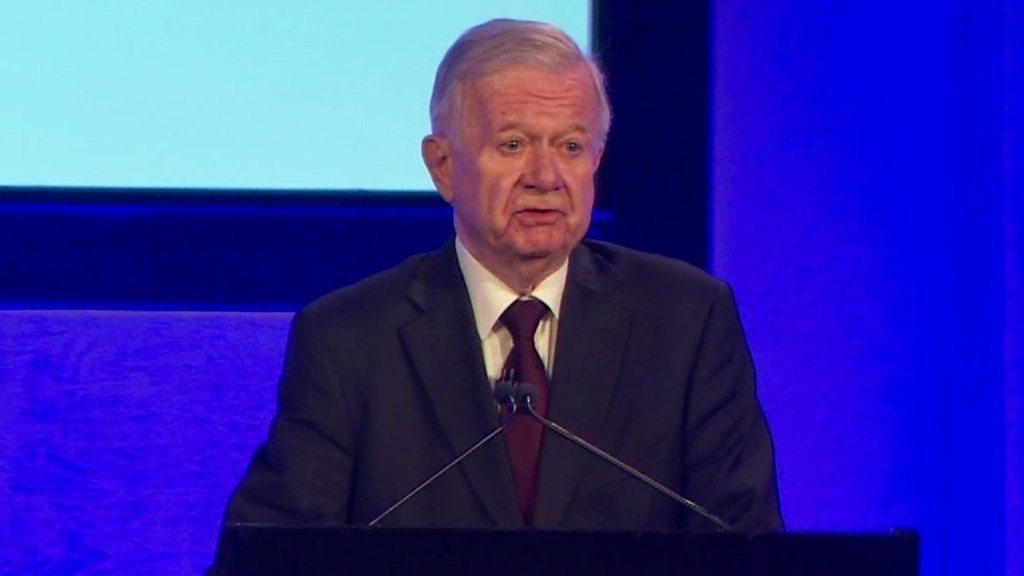
- Published6 July 2016
- Published6 July 2016
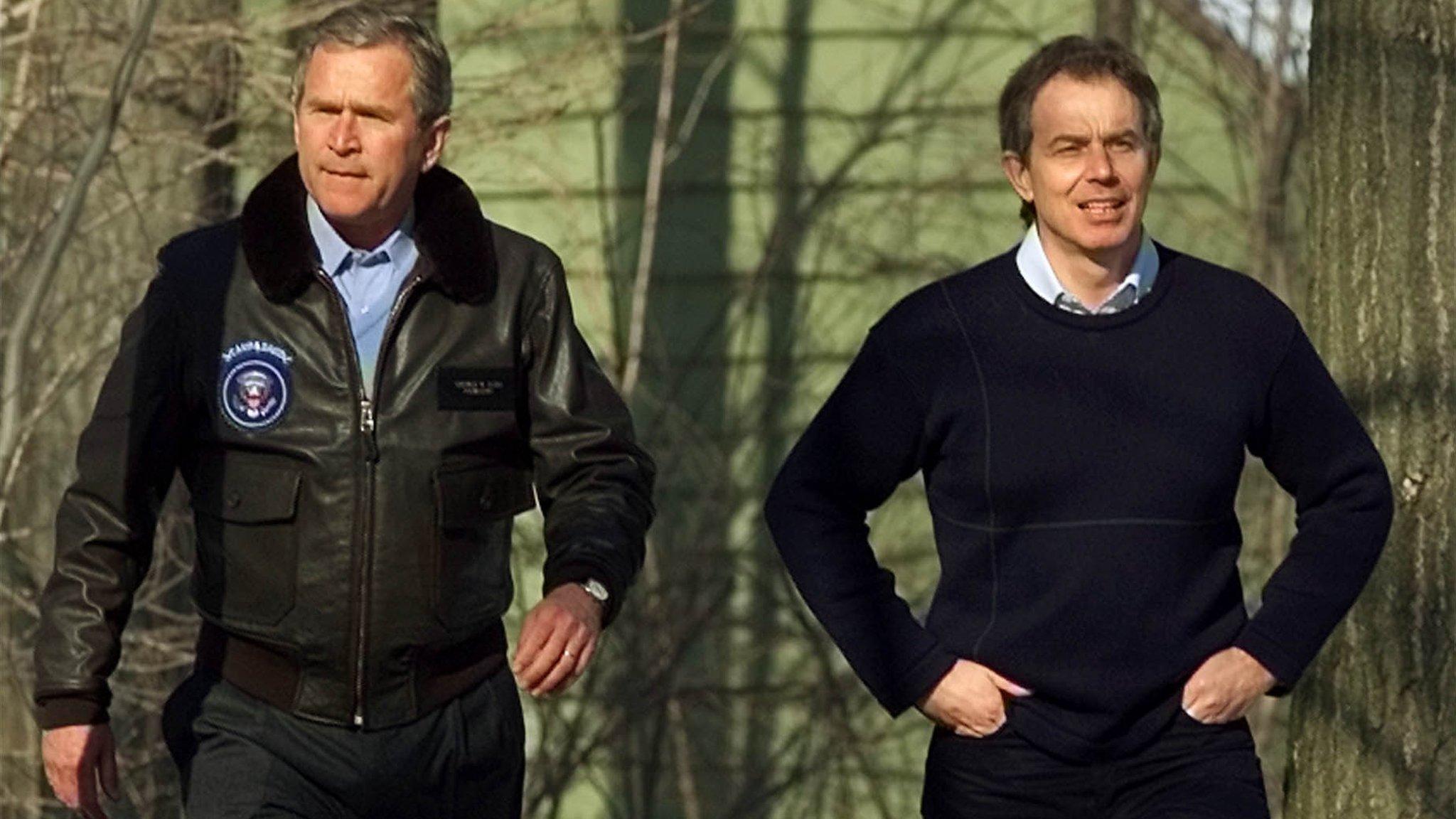
- Published7 July 2016
